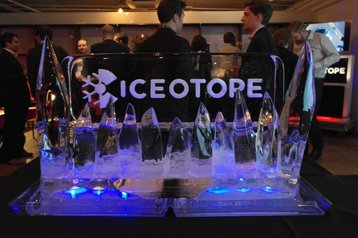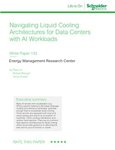Iceotope says its precision liquid cooling technology has achieved chip-level cooling up to and beyond 1000W, reaching an important industry milestone for overcoming the challenges of rising thermal design power.
With high-performance servers for AI workloads causing a rise in chip, server, and rack density and heat levels, data center operators are increasingly seeking sustainable liquid cooling solutions that can stop equipment from overheating and causing performance issues.
In a new report published by the immersion cooling specialist, the company claims that, at a flow rate of 7 l/min, Iceotope’s copper-pinned KUL SINK achieved a thermal resistance of 0.039 K/W when a 1000W heat load was applied to an Intel thermal emulator. This means that when compared in like-for-like tests, the thermal performance of Iceotope’s liquid cooling solution provides an 11.4 percent improvement over other best-in-class tank immersion solutions.
In addition, the tests found that thermal resistance remained almost constant at a given flow rate as the power was increased from 250W to 1000W, which Iceotope says demonstrates that testing at 1500W will yield the same consistency.
“Iceotope Precision Liquid Cooling technology has achieved an important industry milestone by demonstrating enhanced thermal performance capability compared to other competing liquid cooling technologies,” said Neil Edmunds, VP of product management at Iceotope.
“We are confident that future testing of our standard solution at elevated power levels will demonstrate further inherent cooling capability. Iceotope are also continuing to develop new solutions which enable even higher roadmap power levels to be attained in a safe, sustainable and scalable way.”
Founded in 2012, Sheffield-based Iceotope offers four precision liquid cooling solutions – Kul DC. Kul Micro DC, Kul Extreme, and Kul RAN – which reduce energy and water consumption and offer extreme cooling performance for data centers.
In 2022, Iceotope partnered with Meta to re-engineer an air-cooled storage system to be cooled by liquid, demonstrating that immersion cooling can be safely used with hard drive storage.
Rival cooling company JetCool last year told DCD that it was cooling undisclosed ‘bespoke’ chips that use 1500W.







